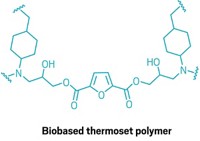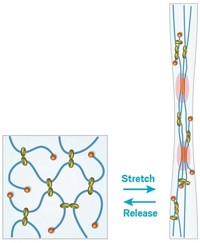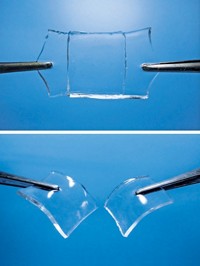Advertisement
Grab your lab coat. Let's get started
Welcome!
Welcome!
Create an account below to get 6 C&EN articles per month, receive newsletters and more - all free.
It seems this is your first time logging in online. Please enter the following information to continue.
As an ACS member you automatically get access to this site. All we need is few more details to create your reading experience.
Not you? Sign in with a different account.
Not you? Sign in with a different account.
ERROR 1
ERROR 1
ERROR 2
ERROR 2
ERROR 2
ERROR 2
ERROR 2
Password and Confirm password must match.
If you have an ACS member number, please enter it here so we can link this account to your membership. (optional)
ERROR 2
ACS values your privacy. By submitting your information, you are gaining access to C&EN and subscribing to our weekly newsletter. We use the information you provide to make your reading experience better, and we will never sell your data to third party members.
Environment
Polymer Hydrolysis Stresses Out Medical Implants
Study finds that water hydrolyzes block copolymer backbones over time, reducing polymer mass and tensile strength
by Stephen K. Ritter
December 3, 2012
| A version of this story appeared in
Volume 90, Issue 49
Polymer scientists tracking how well siloxane-polyether-urethane block copolymers used in medical implants stand the test of time have found that troubling degradation occurs by simple hydrolysis of the polymer backbones (Macromolecules, DOI: 10.1021/ma301965y). Kimberly A. Chaffin of medical device manufacturer Medtronic, in collaboration with Marc A. Hillmyer and Frank S. Bates of the University of Minnesota, Minneapolis, led a team that studied the commercial thermoelastic polymers Elast-Eon E2A and PurSil 35. The researchers exposed the polymers for up to a year in buffered aqueous solutions ranging from 37 °C (body temperature) to 85 °C. They monitored the polymers via X-ray scattering and various spectroscopic techniques, size-exclusion chromatography, and mechanical tests. The polymers are stable to oxidation, but the researchers found that long-term exposure to water leads to both polymer mass reduction and degradation of tensile strength. They suppose that hydrolysis is occurring at the Si–O bonds of polysiloxane units, C–O bonds of polyether units, and N(H)–C(O)–O bonds of polyurethane units. The silver lining in the observation, Hillmyer says, is that further work determining the specific bonds being broken under hydrolytic aging will allow researchers to design more resistant and mechanically stable biomedical materials.





Join the conversation
Contact the reporter
Submit a Letter to the Editor for publication
Engage with us on Twitter